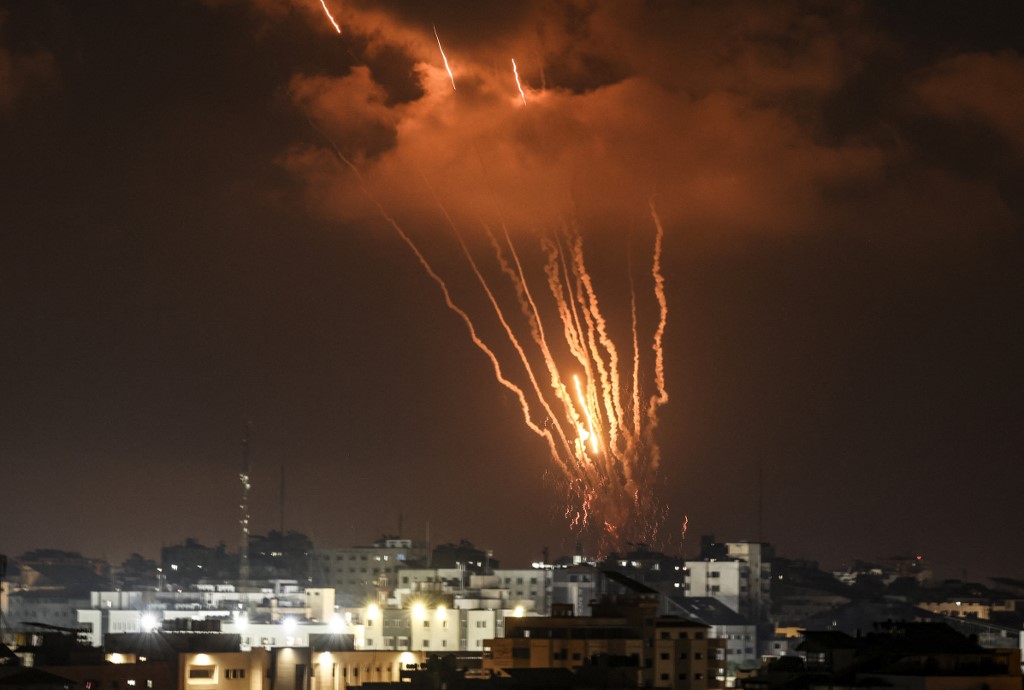As we look back over the past few weeks, it is exceedingly important to avoid drawing hasty conclusions about the outcome of Israel’s brief conflict with Palestinian Islamic Jihad (PIJ) in Gaza. When we ask whether anything truly changed, we must guard against conclusions based on superficial impressions.
The first question to ask is whether “Operation Breaking Dawn” signals that Prime Minister Yair Lapid, usually noted for his naiveté, has grown in office.
The operation did see some astounding successes. Lapid and Defense Minister Benny Gantz talked tough and followed through. Israel did not only take out PIJ installations but also decimated the PIJ leadership. Lapid was on board for this and should get the credit. However, the situation is not quite as simple as it appears.
For example, how much credit should Lapid actually get for the successful outcome of the operation? There are two security/military elements that fell into place during the conflict. One was the extraordinary intelligence provided by the Shin Bet. The other was the remarkable accuracy of our missiles, which made it possible to execute pinpoint hits on PIJ leaders.
The plan to execute the PIJ leadership took several months to refine. It was most certainly being shaped before Lapid became prime minister, and quite likely before his predecessor Naftali Bennett took office.
In a democracy, the political echelon makes the military decisions. Lapid and Gantz met the challenge when the possibilities were presented and gave the order to go ahead with the plan. But Lapid did not go to the IDF and request a plan for hitting PIJ. It was the reverse: The IDF informed him of what they were now capable of. Clarity on this is important.
In the euphoria of the first days after the operation, it was said that PIJ was finished for some time to come. But I see a great deal of uncertainty. Arabs have an honor-shame culture and do not tolerate defeat particularly well. Thus, there is the possibility of a PIJ strike to restore their sense of honor. Certainly, PIJ might simply make a good deal of noise and not follow through. But if they are to attack again, they require a rationale, which will most likely be the terms of the ceasefire that ended the operation.
According to PIJ, Israel agreed to release two prisoners: Khalil Awawdeh, a hunger-striker, and Bassem al-Sa’adi, whose detention in Jenin triggered the escalation. Israel adamantly insists that there was no such agreement. However, the Egyptians, who negotiated the ceasefire, said they would make their best effort to get the terrorists released. PIJ appears to see their release as the final phase of the ceasefire.
This week, a delegation from Egypt is due in Israel. It is imperative for Israel to stand up to Egyptian pressure and refuse to make concessions to keep Gaza quiet. To do so would significantly undermine recent achievements.
Lastly, we must consider the role Hamas played in the operation. Still smarting from its conflict with Israel in May 2021, Hamas preferred to avoid involvement. Israel was also reluctant to take on Hamas, so it carefully avoided hitting Hamas installations, which would have triggered a response.
Some analysts congratulate Israel for weakening PIJ without taking on Hamas. Others have criticized it, because Hamas, the strongest terror group in Gaza, has been further strengthened by the weakening of PIJ. The May 2021 ceasefire with Hamas stipulated that it was responsible for maintaining quiet in Gaza. Hamas failed to honor this commitment and Israel did not respond. Israeli policy in the past has been to hold Hamas responsible for any rocket fire from Gaza. Now this principle has been abandoned.
As for Lapid, the day after the operation ended, he sent a message to the residents of Gaza: “We also know how to provide work, livelihood and a life of dignity to anyone who wants to live in peace by our side. … The choice is yours.”
It appears, then, that Lapid has not changed. Having indirectly strengthened Hamas, does he really believe that the people of Gaza can overthrow their repressive leaders in favor of a life of dignity and economic advancement? Or perhaps he was speaking indirectly to the leaders of Hamas, fantasizing that he might persuade them to moderate in exchange for economic benefits, which he has already begun to increase.
It is certain that Hamas has not changed, whether Lapid understands this or not. Their reluctance to join the fight did not signal moderation but self-preservation. They are playing it smart, amassing their weapons and making plans for whenever the time is right.









